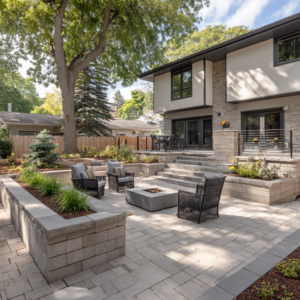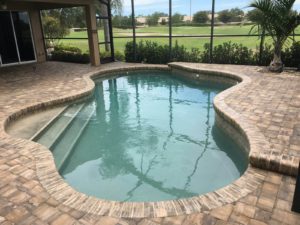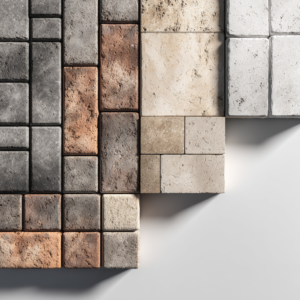Of all the natural stone pavers, travertine pavers are perhaps the most popular ones. And for good reason, as they can fit a tremendous amount of projects with a relatively low cost when compared to other natural stone options.
As with any other natural stone, they have a specific range of color options, from light gray to gold, all in more earthly tones.
They are particularly good in installations around water elements, like pools and hot tubs. In fact, they are the number one choice in those scenarios, and you’ll see why in a bit.
So let’s take a deep dive into travertine pavers and learn all there is to know about this wonderful hardscape material.
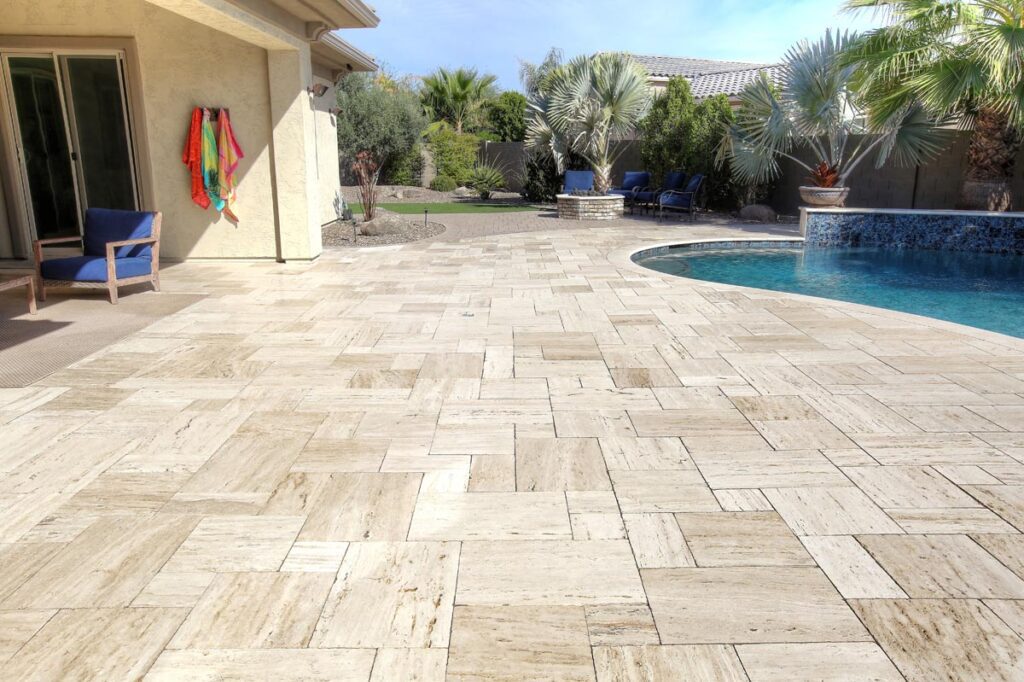
Jump to:
Travertine Pavers – Applications
You can use travertine pavers for basically anything you would use other natural stone options. In fact, travertine even has some extra benefits, as it is much cheaper and easy to work with. Other upsides include:
- Stepping stones are a staple of hardscape design, and travertine can be a great stone for it, bringing a really rustic element to any project;
- They can be used for all elements involving heat, such as the base for fireplaces, fire pits, and, in their countertop stone variation, for outside kitchens and barbecue tops;
- They are a great choice of stone for creating steps;
- Overall, they are a good option for any paver patio project.
But, as we mentioned, travertine pavers really shine when added to poolsides and hot tub installations.
Unlike other natural stone options, travertine works really well with water. Its porosity allows for water to seamlessly pass through it without causing major damage to the structure.
That doesn’t it is impervious to it, though. Although optional, many people still prefer to have their travertine pavers sealed – but because of this special characteristic, it maintains its color for much longer than other natural stone options either way.
It also holds against weather variations much better, something that is really important in regions with freezing conditions and great amounts of rain.
Travertine pavers work in many scenarios, but they are also not recommended in some specific ones. Even though it is a natural stone, it is not as resistant as its cousins, so the material is not really a good contender for driveways and areas with high foot traffic.
Travertine Colors and Costs
As we mentioned, travertine usually ranges from grayish tones to goldish palettes. Being a natural stone, it is limited to its chemical composition, so it cannot stray very far from earthly tones.
The most popular travertine pavers are the ones with walnut or cream color variations, with ivory coming in a close second.
The brighter ones, ending towards gold, can be an exquisite choice, but they are harder to find and a little bit more expensive.
Besides the color itself, travertine pavers can come with different finishes, but that is a surprisingly controversial subject.
One of the main reasons why people go for travertine, especially in poolside installations, is its natural porosity. This natural porosity ensures the installation will not be slippery, something pivotal around pools.
So the hone and chiseled finishes, something that is often the desired choice for other natural stones, is not the best option when it comes to travertine – dismissing the whole point of water absorption.
And speaking of price, travertine offers a great cost-benefit when compared to other pavers. It costs between $4 and $7 per square foot, without counting installation services.
Travertine Installation and Sealing
Travertine pavers are one of the easiest pavers to work with. They are light and easy to cut if needed.
It is recommended that you perform what we call a dry installation when working with travertine. This dry installation consists of a bedding of road base topped by a layer of sand. For more information, follow this article.
Sealing is another controversial topic when it comes to travertine pavers.
The logic is the same: sealing has the potential to diminish the very same aspects of travertine that made you choose it in the first place. Still, sealing is a fundamental part of the process that, from a professional point of view, cannot be skipped.
The goal is to use a sealer that either doesn’t create a film on top of the pavers or at least maintains it non-slippery.
But make no mistake about it, things are never as simple as they seem. That’s why we always recommend asking for the help of qualified experts when installing pavers.
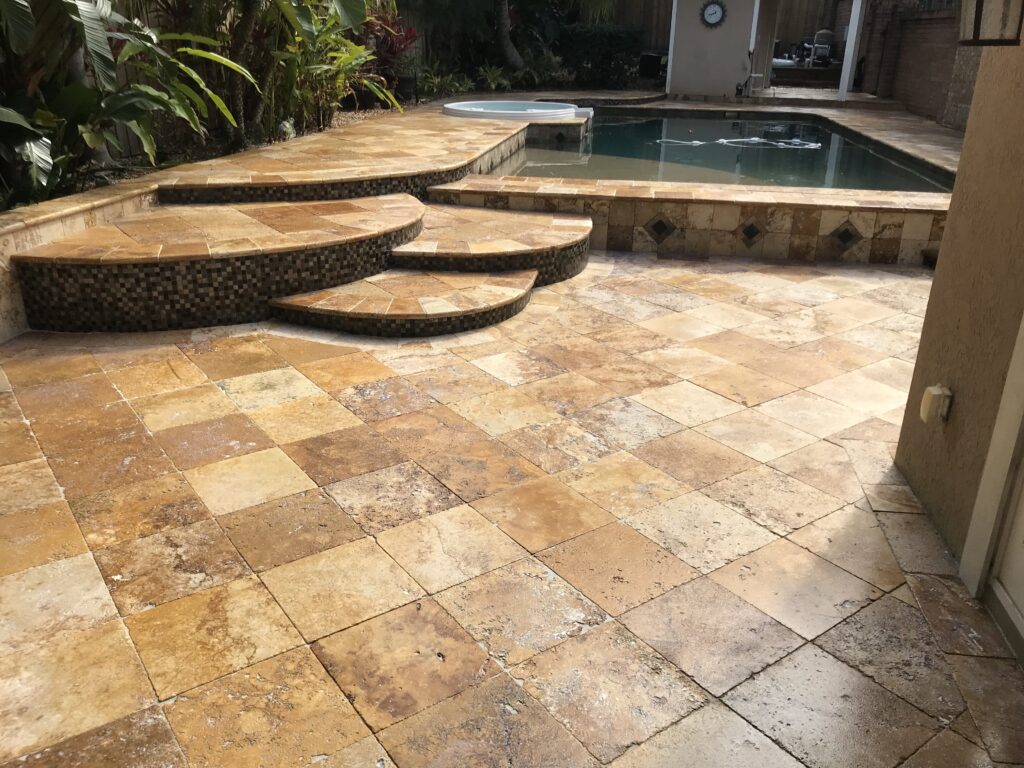
Professional Help Installing Travertine Pavers
A paver installation might prove too much to handle unless you are 100% sure of what you’re doing. And when we are talking about travertine, a really deep analysis of the situation to choose the exact perfect sealer is pivotal for the success of the installation.
We here at JS Brick have performed countless travertine paver installations over the course of our 22 years of activity in the business. We know how tricky things might get.
That’s why we always recommend hiring professionals in your area that you can trust. And in case you are around our area of activity, the Sarasota and Manatee counties, in FL, why not give us a call to help you?
Contact us right now at +1 941 586 9140 or email us at [email protected]. We would be happy to hear from you and help with any hardscape need you might have.

